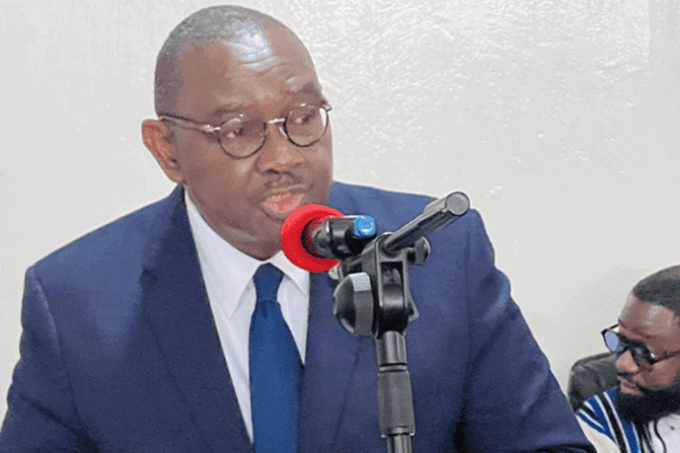The Liberian government, under the leadership of Justice Minister and Attorney General Cllr. N. Oswald Tweh, has embarked on a significant anti-corruption drive, targeting several key institutions and officials suspected of misappropriating public funds. The Liberia Anti-Corruption Commission (LACC) is at the forefront of these investigations, meticulously compiling evidence to support potential prosecutions. Among the entities under scrutiny are the Liberia Telecommunications Authority (LTA), the Liberia Refugee Repatriation and Resettlement Commission (LRRRC), the National Oil Company of Liberia (NOCAL), the National Road Fund (NRF), and the National Fisheries and Aquaculture Authority (NaFAA). The investigations encompass alleged misconduct by former officials, including NOCAL’s former CEO, Rustonlyn Suacoco Dennis, and NaFAA’s former head, Emma Glassco. The LACC’s findings will be presented to President Joseph Nyuma Boakai, paving the way for potential indictments against those implicated.
Minister Tweh has publicly affirmed his support for President Boakai’s proactive approach of suspending officials accused of corruption pending the outcome of investigations. This decisive action aims to prevent interference with ongoing investigations and safeguard the integrity of evidence. The Minister underscored the importance of allowing due process to unfold while mitigating the risk of compromised investigations. However, the situation involving LTA Chairman Abdullah Kamara has sparked controversy. Despite being implicated in a General Auditing Commission (GAC) report, Kamara remains in his position, raising questions about selective enforcement and potentially undermining the government’s anti-corruption efforts. This discrepancy in treatment compared to other suspended officials has fueled criticism and calls for consistent application of the suspension policy.
Minister Tweh addressed the concerns surrounding Kamara’s continued tenure, stating that a thorough review of the GAC report is necessary before any definitive action can be taken. While acknowledging the report’s public release, he emphasized the importance of a comprehensive understanding of its contents to ensure informed decision-making. This cautious approach reflects a commitment to due process and a desire to avoid premature judgments based on incomplete information. The Minister’s response suggests a balanced approach, recognizing the need for accountability while upholding the principles of fairness and thorough investigation.
The Attorney-General, during an appearance on OK FM, acknowledged the perceived slow pace of the criminal justice system, attributing it to various factors. He stressed the complexity of corruption investigations, requiring meticulous evidence gathering and analysis. Tweh advocated for increased resources for the LACC, highlighting the need for a larger team of skilled investigators to handle multiple cases concurrently and expedite the investigative process. This plea for enhanced capacity reflects the government’s commitment to bolstering anti-corruption efforts and addressing the challenges that hinder efficient investigations.
Furthermore, Minister Tweh shed light on the structural and logistical challenges plaguing the justice system. He cited overcrowded prisons resulting from insufficient infrastructure as a major impediment to effective law enforcement. He also underscored the need for enhanced training and increased staffing within the Ministry of Justice to strengthen its capacity to prosecute corruption cases effectively. These systemic challenges underscore the need for comprehensive reforms to ensure the justice system can effectively address corruption and uphold the rule of law.
The Liberian government’s anti-corruption drive signifies a crucial step towards fostering transparency and accountability within public institutions. The ongoing investigations, coupled with President Boakai’s decisive suspensions, send a strong message that corruption will not be tolerated. However, the controversy surrounding LTA Chairman Kamara highlights the need for consistent application of policies and procedures to maintain public trust and ensure the credibility of the anti-corruption campaign. Addressing the structural and logistical challenges within the justice system is equally crucial to strengthening the fight against corruption and promoting good governance in Liberia. The government’s commitment to providing the LACC with the necessary resources and addressing the systemic bottlenecks will be essential for achieving tangible results and fostering a culture of integrity in public service.


